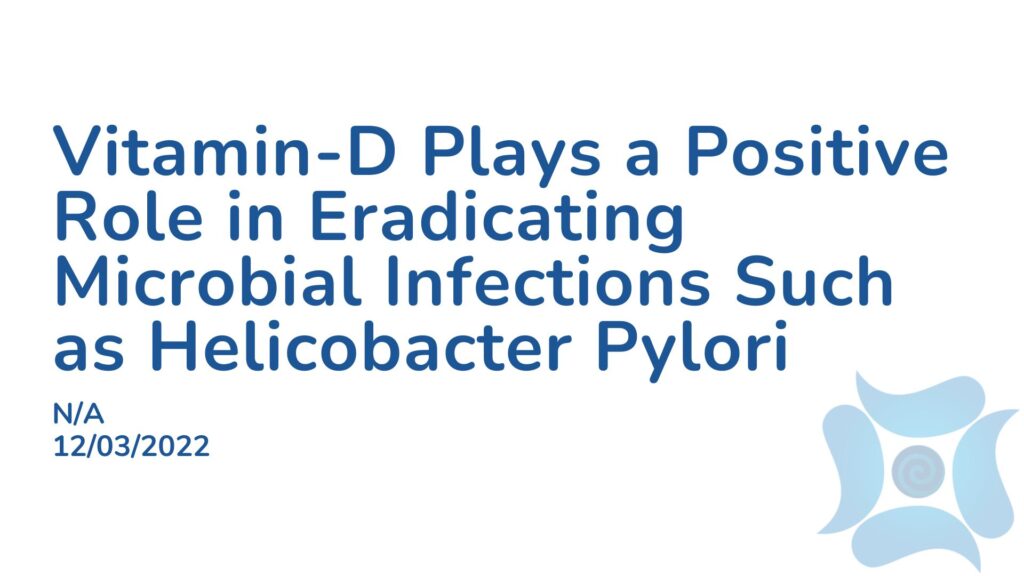Summary:
Helicobacter Pylori is a bacteria that colonizes the human stomach and is known to cause multiple ailments such as gastritis, stomach ulcers and gastric cancer. Research has shown that vitamins such as vitamin-C, E and D may play a role in the eradication of this bacteria. This paper is a systematic review focusing on whether vitamin-D levels play a role in the eradication of a helicobacter Pylori infection, so that guidelines can be provided to clinicians to use vitamin-D as a treatment option. This review synthesized the evidence from 10 published research papers conducted between 2010 and 2022. The studies showed consistent results, that vitamin-D plays a positive role in the eradication of a helicobacter pylori infection due to its antimicrobial mechanisms. The results also showed that patients who tested positive to helicobacter pylori had lower vitamin-D levels than patients without it.
Abstract:
Background: H-pylori is a major public health problem that leads to a plethora of gastrointestinal problems. Treatment of Helicobacter Pylori has been found to reduce the burden of chronic gastritis and peptic ulcers. The role of Vitamin-D in the eradication of H-pylori has been investigated in numerous observational and experimental studies. We conducted this systematic review to review and synthesize the findings on the role of Vitamin-D in eradicating H-pylori infection from the human body. Methods: This review systematically synthesizes the evidence from published research studies conducted between 2010 and 2022. The review was conducted by using an updated PRISMA (Preferred Reporting Items for Systematic Reviews and Meta-Analyses) checklist. An electronic systematic literature search was carried out using PubMed and CINAHL (Cumulative Index to Nursing and Allied Health Literature). The primary outcome was the eradication of H-pylori from the stomach of the human body. Whereas the primary exposure or intervention serum vitamin-D levels. Results: Ten articles were incorporated into the review. The findings from all studies revealed a positive role of serum vitamin-D in the eradication of H-pylori infection. Levels of Vit-D were inversely associated with H-pylori infection (P<0.001). The rate of eradication was 70 to 77.5% among study participants. Mean levels of Vitamin-D were significantly higher in the successful treatment group than in the failure group (P<0.0001). Conclusion: The current review findings demonstrated a positive role of serum vitamin-D levels in the eradication of H-pylori infection with consistent findings across the studies. Future studies are recommended to conduct randomized controlled trials to assess the efficacy of vitamin-D supplementation in the eradication of H-pylori and various mechanisms by which vitamin D plays such an important role.
Article Publication Date: 12/03/2022
DOI: N/A



